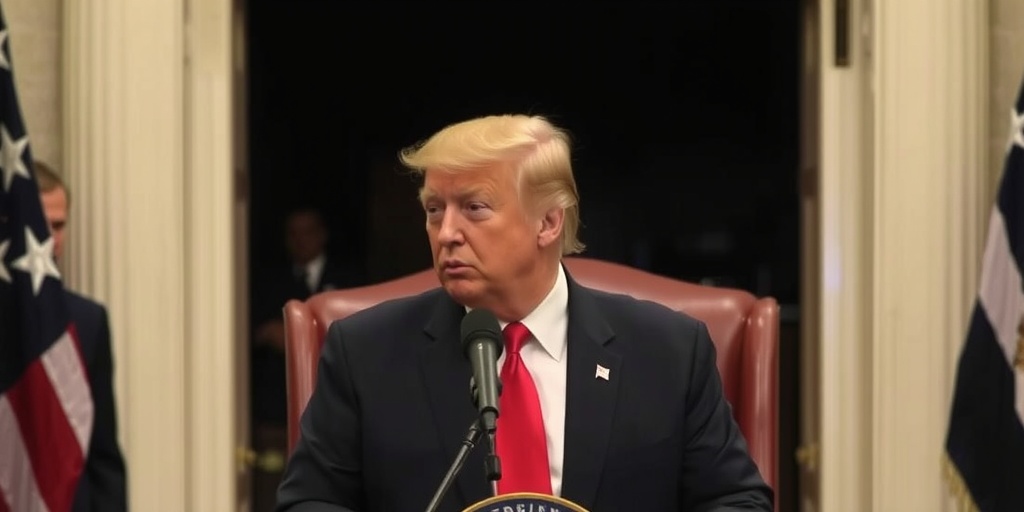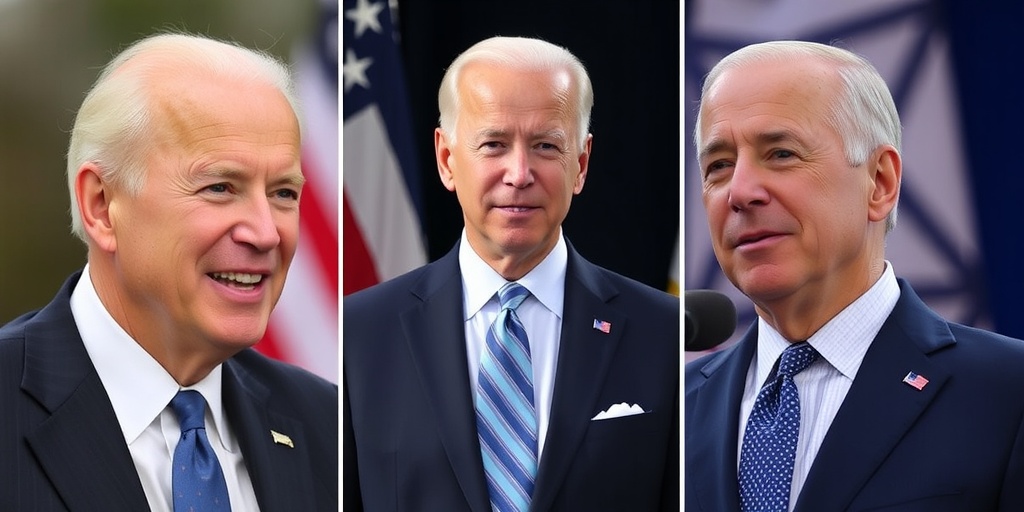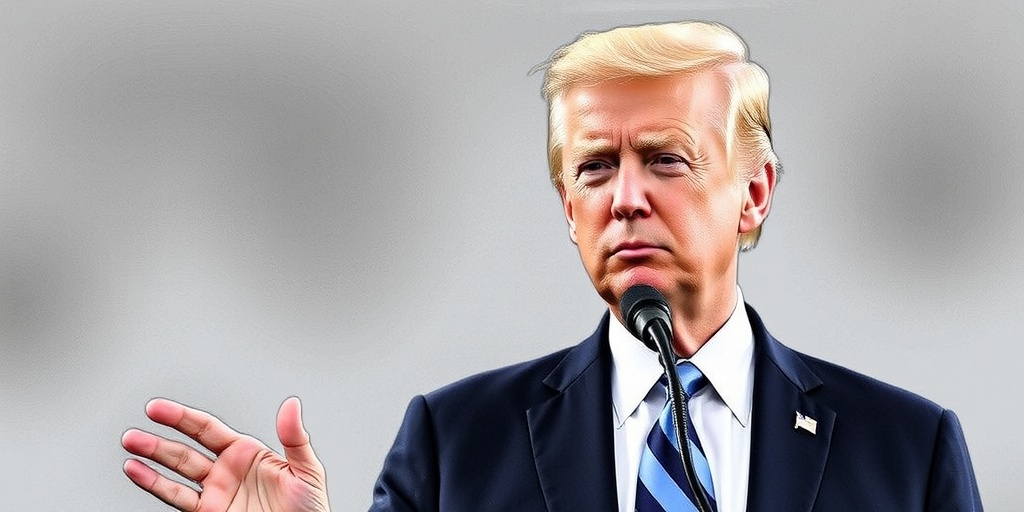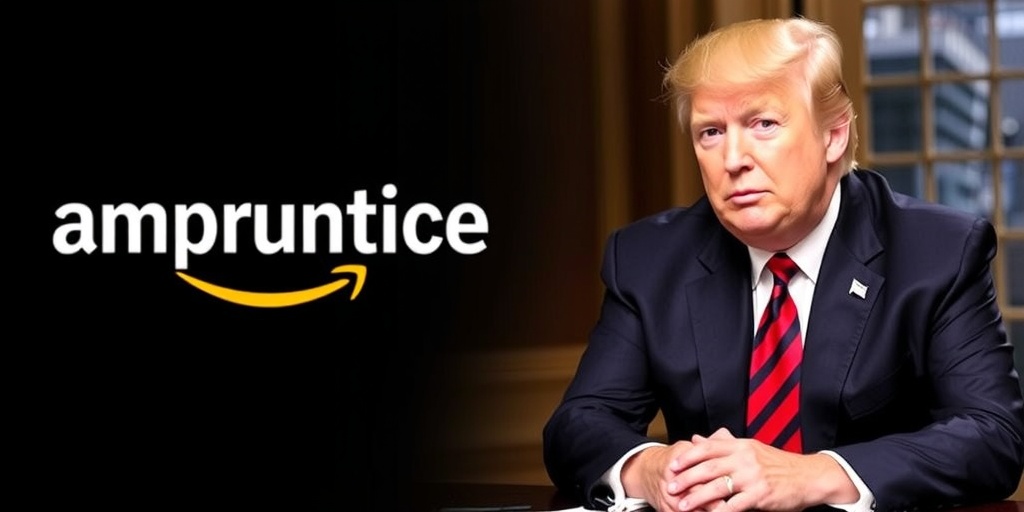Now Reading: Trump Strengthens Control Over Republicans with Charisma
-
01
Trump Strengthens Control Over Republicans with Charisma
Trump Strengthens Control Over Republicans with Charisma
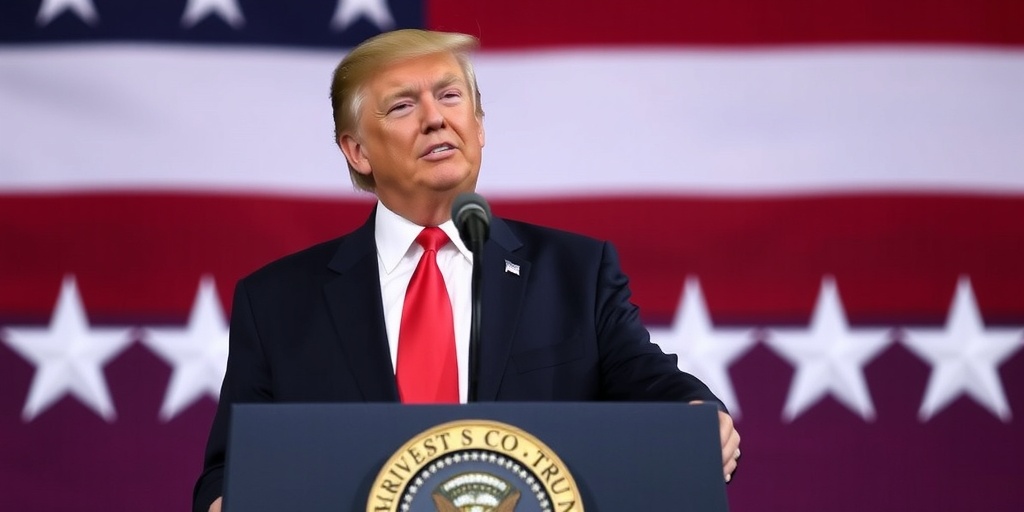
Title: Trump’s Grip on Congress Tightens as Republicans Align with His Agenda
In the lead-up to the opening day of the new Congress, Representative Chip Roy of Texas found himself at the center of political maneuvering after receiving a call from President-elect Donald J. Trump. Notably hesitant to support Speaker Mike Johnson’s re-election, Roy ultimately acquiesced after a blunt conversation with Trump, who had made it clear that his goodwill hinged on Roy’s willingness to back Johnson and the Trump agenda.
Trump expressed his frustration, stating, “I will if you’re good to me,” signaling that his previous online attacks and threats—such as considering the recruitment of a primary challenger to unseat Roy—would cease if Roy pledged his alignment. Roy’s subsequent support for Johnson not only averted a potential leadership crisis on the eve of Trump’s inauguration but also marked a shift toward collaboration with the president’s political aspirations.
Recent developments have further illustrated Roy’s influence and alignment with Trump. Just last week, he orchestrated a gathering of fiscal conservatives with the president to discuss crucial temporary spending measures necessary to avoid a government shutdown. During this meeting, Roy robustly advocated for support of the spending bill despite the general opposition from his group, demonstrating his readiness to bridge divides within the party.
The evolving dynamics offer insight into Trump’s strategic management of Republican lawmakers, particularly at the start of his second term, when internal party divisions present challenges to his agenda. Trump’s mastery over the party, while not absolute, is approaching a level where dissent is increasingly uncommon among Republicans. Former Representative Patrick McHenry remarked on Trump’s close-knit control, observing that Republican lawmakers have internalized the political landscape shaped by Trump’s influence.
As Trump navigates his power, he has transitioned Congress from a traditionally assertive branch of government into a more compliant body, willingly surrendering its authority on key issues. This shift has been characterized by the president using his political capital to woo members of Congress while simultaneously wielding the threat of retaliation against those who defy him. Interviews with various congressional insiders have painted a picture of Trump as both a patron and a power broker, reinforcing party loyalty through a combination of charm and intimidation.
To bolster his influence, Trump has been employing a blend of incentives and reminders of the consequences of defiance. While he maintains a legislative director, he frequently prefers to engage directly with congressional members, making them feel valued through personal interactions and messages. Actions such as inviting lawmakers to ride on Air Force One or extend hospitality at his Mar-a-Lago resort create a bond that compels respect and allegiance.
This approach has proven effective, particularly when Trump has specific requests for Republican representatives. For instance, during a critical moment in January, when Speaker Johnson faced challenges securing votes for his re-election, Trump made a direct appeal to holdouts. His conversation with Representatives Ralph Norman and Keith Self was enough to sway their support after emphasizing unity against Democratic cohesion and using pointed language to underscore the importance of their votes.
In similar instances, Trump has utilized this informal communication network to quell dissent among Republicans regarding budget resolutions and other crucial decisions. Representative Tim Burchett’s hesitation on a budget plan was swiftly resolved after a cordial call with the president, wherein Trump acknowledged Burchett’s concerns while emphasizing the necessity of supporting his agenda.
As Burchett reflected on the exchange, he noted the personal touch of the interaction—an indication of how Trump’s involvement can pivot legislative support. This sentiment resonates with others on Capitol Hill, where many Republicans are eager to garner Trump’s favor and leverage their connections to him. His direct engagement, along with the accessibility he affords lawmakers, enhances his standing amongst them, reinforcing their commitment to the party line.
Republican members are increasingly aware that crossing Trump can lead to public backlash from his social media sphere, commanded by prominent figures such as Donald Trump Jr. and Elon Musk, who are known for vocalizing dissent against Republicans who step out of line. Despite occasional threats of primary challenges, those who conform to Trump’s expectations find themselves welcomed back into favor.
Speaker Johnson has capitalized on this dynamic, motivating members to weigh their decisions carefully, often reminding them that their actions could invoke Trump’s dissatisfaction. The upcoming budget negotiations exemplify this, as Johnson has clarified that opposition to the proposed resolution risks inciting the president’s wrath—prompting his colleagues to align with his vision.
In conclusion, as Trump seeks to impose his agenda, the bond he shares with Republican lawmakers continues to blossom, ensuring that the balance of power within Congress is heavily influenced by his leadership. The outcome of this ongoing alignment will shape pivotal aspects of governance in the months to come, as Congress navigates its role under Trump’s reign.
Stay Informed With the Latest & Most Important News
Previous Post
Next Post
-
 01New technology breakthrough has everyone talking right now
01New technology breakthrough has everyone talking right now -
 02Unbelievable life hack everyone needs to try today
02Unbelievable life hack everyone needs to try today -
 03Fascinating discovery found buried deep beneath the ocean
03Fascinating discovery found buried deep beneath the ocean -
 04Man invents genius device that solves everyday problems
04Man invents genius device that solves everyday problems -
 05Shocking discovery that changes what we know forever
05Shocking discovery that changes what we know forever -
 06Internet goes wild over celebrity’s unexpected fashion choice
06Internet goes wild over celebrity’s unexpected fashion choice -
 07Rare animal sighting stuns scientists and wildlife lovers
07Rare animal sighting stuns scientists and wildlife lovers













